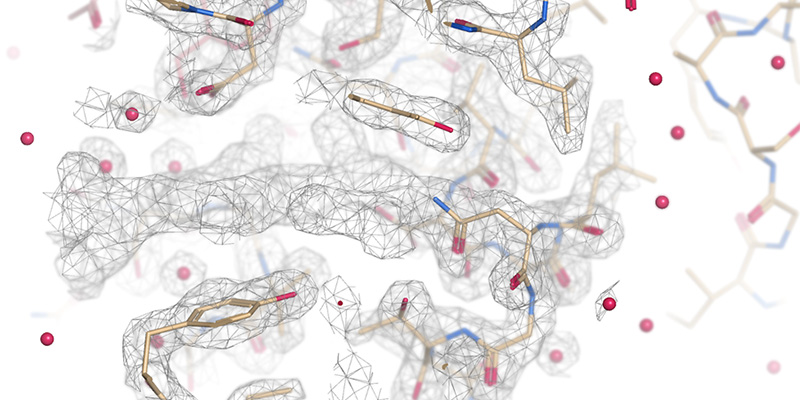Boost for computational structural biology at York
Posted on Friday 24 May 2024

Biomolecules such as proteins are involved in immunity and diseases, and it is important to study their atomic structure to understand how they work. Structural biology, a field that investigates the structures of biomolecules, is changing fast: Artificial Intelligence (AI) is providing new possibilities to predict protein structures. But capturing the function requires more than a snapshot: the interesting thing is to see biomolecules move. Documenting dynamics, however, is challenging.
This new frontier in experimental structure determination has seen a boost in the UK by the recent award the BBSRC of a £2m programme grant developed and coordinated by Ivo Tews at the University of Southampton. The project exploits AI to allow quicker determination and better validation of experimental structures, but its major focus is to push boundaries in the computational analysis of experimental data to tease out protein structure dynamics. This research will create molecular movies to allow researchers to observe molecules in action. The network includes partners from the Diamond Light Source, the Research Complex at Harwell, the LMB / MRC Cambridge, and the Universities of Liverpool, Newcastle and York.
At the University of York, Lucy Schofield and Jon Agirre will develop software for the identification and handling of the different natural chemical modifications proteins can have after synthesis. Dr Agirre is currently supported by a Royal Society University Research Fellowship that has enabled him to build a team of data scientists coalescing around the study of protein modifications, notably including protein glycosylation.
